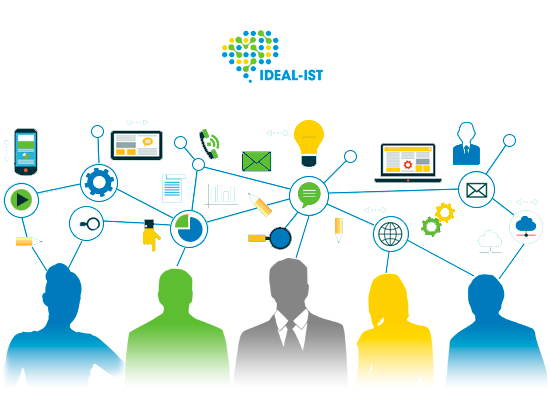
A challenge-based approach will bring together resources and knowledge across different fields, technologies and disciplines, including social sciences and the humanities. This will cover activities from research to market with a new focus on innovation-related activities, such as piloting, demonstration, test-beds, and support for public procurement and market uptake. It will include establishing links with the activities of the European Innovation Partnerships (EIP).
Digitisation was retained as one of the five main political drivers to be taken into account in the design of Work Programme 2018-20, which led to the development of a major focus area dedicated to this priority (DT - ‘Digitising and transforming European industry and services’) and a further strengthening of the integration of the support to ICT-related R&I activities across LEIT and societal challenges.
Information and communication technologies also play an essential role in the focus area addressing security (SU - ‘Boosting the effectiveness of the Security Union), which notably covers cybersecurity and aims at bringing security-related research closer to other policies and societal challenges in the parts of H2020 where they belong.
ICT contributions are expected in each of the seven societal challenges in Horizon 2020:
- Health, demographic change and wellbeing;
- Food security, sustainable agriculture and forestry, marine and maritime and inland water research, and the Bioeconomy;
- Secure, clean and efficient energy;
- Smart, green and integrated transport;
- Climate action, environment, resource efficiency and raw materials;
- Europe in a changing world - inclusive, innovative and reflective societies;
- Secure societies - protecting freedom and security of Europe and its citizens.
Short description:
Horizon 2020 reflects the policy priorities of the Europe 2020 strategy and addresses major concerns shared by citizens in Europe and elsewhere.